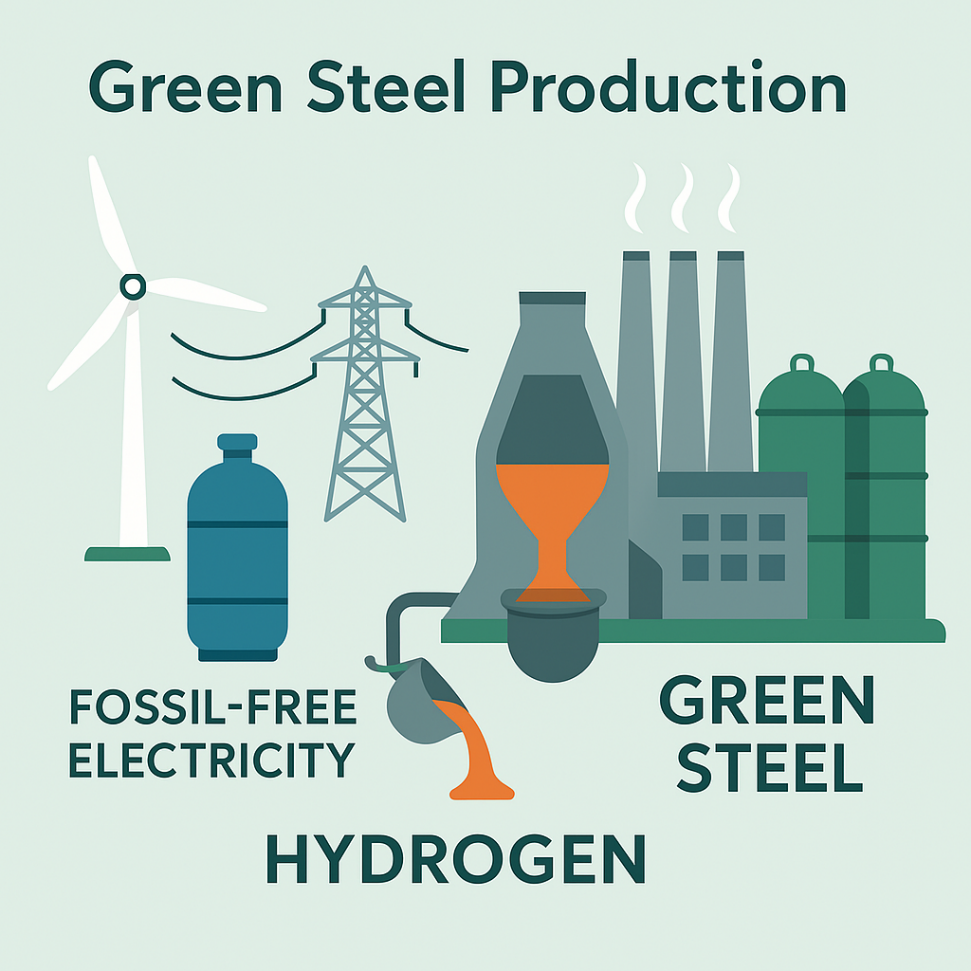Johansson, P-O. & Kriström, B. 2025. ”Green” steel investments in the EU: Pie in the sky? Resource and Energy Economics, 101494

Summary
- The steel industry contributes approximately 7%–8% of global CO₂ emissions.
- Several initiatives aim to achieve carbon-neutral steel production by replacing coal with hydrogen produced from fossil-free electricity.
- These hydrogen-based steel projects rely heavily on substantial government subsidies, raising concerns about economic viability.
- The issue is especially relevant under comprehensive climate policies, such as the EU’s Fit-for-55 package.
- Our analysis uses a cost-benefit framework grounded in general equilibrium theory, capturing both direct and indirect policy effects on markets and the wider economy.
- The framework incorporates the EU Emissions Trading System (ETS) and Carbon Border Adjustment Mechanisms (CBAMs) to evaluate policy impacts.
- We assess the social desirability of hydrogen-based steel production using a case study of a large-scale plant in northern Sweden.
- Results show significant social losses, raising questions about the sustainability of similar hydrogen steel initiatives across the EU.
- The findings suggest the risk of a repeat of the 1970s European steel crisis if economic fundamentals are not carefully considered.

